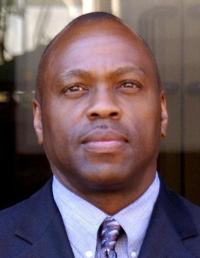Great interview from Gloria Ohland at Move L.A. with Phil Washington, who started his CEO job with LA Metro this week. The hope is that Mr. Washington will help get new transit projects built on time and on- or under-budget. And also that he will bring some innovative financing methods to Los Angeles, as he did in Denver.
On his approach to managing projects (a crucial skill that seems to be sorely lacking in many public agencies):
I try to work always within what planners call the “triple constraints” of schedule, scope and budget because you can’t change one constraint without having an impact on the other two. A transit agencies has to have its act together in order to do a good job of managing the public’s trust — you can’t keep changing the plans because that results in change orders that affect the budget and the schedule. At RTD there were bumps along the road but we always looked at the private sector — the engineering companies and builders — as partners not enemies, and we didn’t sit on problems. I wanted project briefings every couple of weeks, and we valued getting projects done sooner rather than later because that meant that the real estate development would happen sooner and the jobs would be created sooner. Because of these priorities we may not have been as prescriptive as some transit agencies. The transit industry can be closed-minded about relying on the prescribed way of doing things, but I want to be receptive to innovative ideas and new technical concepts.
I was troubled though to read these comments on transit-oriented development:
That’s development in downtown Denver, but we’re also seeing development along both new rail and bus rapid transit lines, proving that development will happen if you just get the transit projects done, which often requires cutting down on the number of change orders and enhancements to lines and stations.
Sadly, transit-oriented development doesn’t just “happen” if you build a transit line, and we need transit leaders like Washington to be well aware of that dynamic in Los Angeles and California more generally. The market opportunities are routinely squelched by neighbors, and in some cases there are no market opportunities at all due to poor siting of rail lines through derelict areas.
On financing, an encouraging and realistic attitude:
We are becoming reluctant financial geniuses in the public sector. Public transportation agencies are always just scraping by, deferring maintenance and new projects, and raising fares. The Highway Trust Fund is just about empty due to declining gas tax revenues — because cars are more fuel-efficient — and projects are only moving forward because Congress transfers money into the Trust Fund from the General Fund. Meantime, the private sector has money sitting on the shelf — from pension funds and private equity — that’s just waiting to be invested somewhere that provides a decent return. Transportation infrastructure is a good investment opportunity when it’s kept in a state of good repair, and it’s an investment opportunity that’s not going away. So if we do it right and negotiate these contracts properly we know there can be benefit for both the public and private sectors because we have complementary needs and assets.
Washington will have his work cut out for him in LA, but he seems to be well-positioned for success. I wish him luck.
Leave a Reply
You must be logged in to post a comment.



